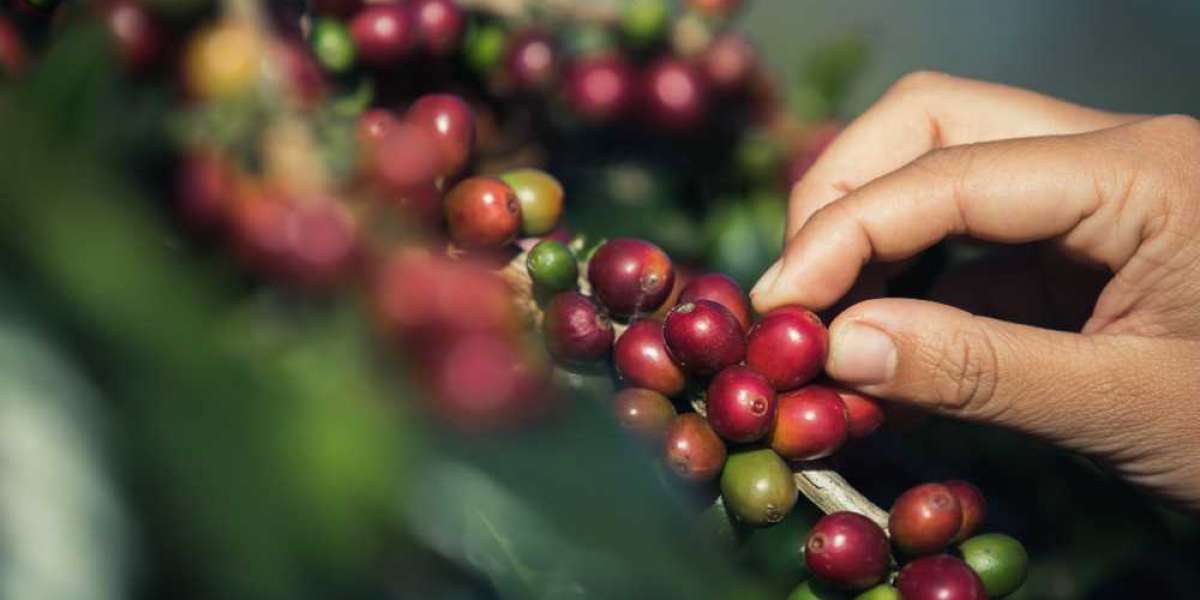In the global world of specialty coffee, certain regions consistently stand out for the richness, balance, and complexity of their beans. Among them, Guatemala has carved out a reputation as one of the premier coffee-growing countries. Coffee beans from Guatemala are celebrated for their distinctive flavor profiles, often combining a smooth body with bright acidity and a range of tasting notes — from chocolate and caramel to citrus and tropical fruits.
But what makes Guatemalan coffee truly exceptional isn’t just its taste. It’s the combination of geography, tradition, sustainable practices, and generations of farmers who have shaped the country’s coffee culture. From the highlands of Huehuetenango to the volcanic valleys of Antigua, Guatemala offers a diversity of growing environments that few countries can match.
The Unique Growing Conditions of Guatemala
Coffee thrives in very specific conditions, and Guatemala checks nearly every box. The country is home to several active and dormant volcanoes, which enrich the soil with essential minerals. These volcanic soils, along with high altitudes — many farms are located between 1,200 and 2,000 meters above sea level — create an ideal environment for slow-maturing Arabica coffee plants.
Slow maturation allows coffee cherries to absorb more nutrients and sugars, ultimately leading to a deeper, more complex flavor. The country also benefits from a stable climate, a defined wet and dry season, and a wide range of microclimates — all of which contribute to unique regional profiles within the same small country.
Each growing region in Guatemala has its own identity. Antigua, one of the most famous regions, is known for full-bodied coffees with cocoa and spice notes. Huehuetenango, located in the northwestern highlands, produces beans with bright fruit tones, floral aromas, and elegant acidity. Atitlán, nestled around Lake Atitlán, often yields coffees with a clean, crisp finish and distinctive citrus characteristics.
A Deep Cultural Connection to Coffee
Coffee is more than a crop in Guatemala — it’s a part of the country’s identity. For generations, smallholder farmers have grown coffee on family-owned plots of land, passing down techniques and knowledge from one generation to the next. These farmers often live in remote rural areas, where coffee farming provides the main source of income and supports entire communities.
Most Guatemalan coffee is handpicked, ensuring that only the ripest cherries are harvested. This labor-intensive process results in better quality beans and is a testament to the care that goes into every stage of production. Processing methods also vary, with many producers opting for traditional washed processing that emphasizes clarity and brightness in the cup.
In recent years, there's been a growing focus on specialty coffee and direct trade relationships. Cooperatives and independent farms have begun investing in cupping labs, experimental processing methods, and traceability systems that allow buyers to know exactly where their coffee comes from. This shift has not only improved quality but also empowered farmers to earn more for their hard work.
The Flavor Profile of Guatemalan Coffee Beans
If you’ve ever tasted coffee from Guatemala, you probably noticed its smooth texture and balanced flavor. These beans tend to have medium to full body and a wide flavor spectrum, depending on their origin. Chocolate and nut notes are common, particularly in coffees from Antigua. In contrast, beans from Huehuetenango often offer fruit-forward characteristics, such as red apple, plum, or berries, with lively acidity.
What makes Guatemalan coffee especially appealing is its consistency. Whether you brew it as a pour-over, French press, or espresso, the result is usually a clean, flavorful cup that’s both comforting and complex. It’s an ideal choice for coffee lovers who appreciate subtlety and depth rather than bold, overpowering notes.
The Role of Sustainability and Organic Farming
Many farmers in Guatemala practice environmentally friendly methods, including shade-grown cultivation, organic farming, and natural composting. While not all coffee from Guatemala is certified organic, many producers use organic practices simply because they align with traditional, low-impact methods that preserve the land for future generations.
Shade-grown coffee, for instance, not only helps regulate the temperature for coffee plants but also protects local wildlife and reduces the need for chemical fertilizers. By planting coffee under native trees and preserving forest ecosystems, Guatemalan farmers contribute to biodiversity and soil health.
In addition, some cooperatives focus on empowering indigenous communities, supporting women-owned farms, and offering training programs that help small producers compete in the specialty market. These efforts are helping to create a more sustainable and inclusive coffee industry — one where quality and ethics go hand in hand.
Enjoying Coffee from Guatemala at Home
If you’re looking to experience the quality of Guatemalan coffee at home, start with a fresh, single-origin roast from a reputable roaster. Light to medium roasts tend to highlight the origin’s delicate acidity and fruit notes, while darker roasts bring out chocolate and caramel flavors.
Use filtered water and grind your beans just before brewing to ensure maximum freshness. A pour-over method like a V60 or Chemex is ideal for capturing the complexity of Guatemalan beans, but even a well-done French press or drip machine can produce excellent results.
No matter how you prepare it, you’ll notice that coffee from Guatemala offers a balanced, refined taste that feels both comforting and elevated. It’s a cup that tells a story — one of ancient soil, skilled hands, and a country that has quietly become one of the most respected names in specialty coffee.
Final Thoughts
Coffee beans from Guatemala are not just a product of favorable conditions — they are the result of dedication, culture, and a deep respect for the land. With their versatile flavor profiles, consistent quality, and ethical production practices, these beans are a favorite among both coffee professionals and everyday drinkers.
Whether you’re exploring specialty coffee for the first time or looking to deepen your appreciation for single-origin varieties, Guatemalan coffee offers an experience that is rich, rewarding, and undeniably world-class.








